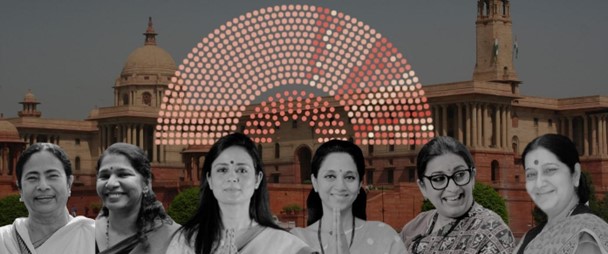Courtesy: Supreme Court Observer
The Women’s reservation Bill, which is also known as Nari Shakti Adhiniyam was introduced in Parliament, was passed and received the assent of the Indian President. The legislation requires to reserve one third of seats for women in Lower House and State Assemblies for upcoming 15 years. The bill mandates the requirement of reserving seats for women to eliminate their under-representation in Indian Politics so as to accomplish gender-equality in the public decision making. The seats hitherto reserved for the Scheduled Caste and Scheduled Tribes also come within the scope of the reservation. The parliamentary session was a historic moment as the proposed bill was on the circuit since 1990.
The bill does have a long history which is interpreted to be started in the Constituent Assembly where out of 389 members, there were only 15 female representatives. It is in the 81st Constitution Amendment Bill in 1996 that it sought to introduce the 33% reservation initially. But the bill lapsed and remained shrouded in the darkness in 1996, 1998, 2003 and 2014. Though, in 2023 the Constitution 128th Amendment Bill rolled out the red carpet for adequate representation for women in India in the public sphere, it will be implemented only after the next census.
Gazing through history reveals the female representation in Indian politics where the first Lok Sabha had 26 women MP’S in 1951. The figure rises to 62 in 2014 and 82 in 2019. Currently, India has the most number of women MP’s, though it is well below the global average. In Asia, the Philippines is the first among the countries to reserve seats for women with a global average of 28%. Whereas Nepal and South Korea seem to hit 50% of seats reserved for women in the public sphere.
The bill certainly has many positive impacts as it addresses the matters of gender bias in politics. The bill strives to include greater women representation in Indian politics thereby addressing the gender disparity in the policy framing which results in women empowerment. Diversity in decision making is one of the major benefits of the legislation which is a pressing priority. But the inability of this piece of legislation being implemented, left it as a topic of debate and discussion under Indian politics. It is also argued that this law can lead to tokenism wherein the diverse views and involvement seems stagnant.
In conclusion, the Women’s Reservation Bill bestows a complex set of possibilities and challenges. In one way it has the potentiality to advance gender equality to empower women under Indian politics, its implementation calls for consideration of imminent impacts on political dynamics, societal attitudes, and the inclusion of marginalized communities.
REFERENCE
Satyendra Wankhade, “Women’s Reservation Bill”, Published on: 20 Sep 2023, 9:12 pm https://www.barandbench.com/
Saroj Chadhain Blunt and Frank, India “Women’s Reservation Bill 2023- A View point”, Published on September 29, 2023, 10:45 AM IST , Times of India, https://timesofindia.indiatimes.com/
Krithiha V.and Sushovan Patnaik, “The Women’s Reservation Bill has a long history of arguments and stakes”, Published on 25th Sep 2023, https://www.scobserver.in/
Ronojoy Sen, “Indian Parliament Passes Women’s Reservation Bill”, Institute of South Asian Studies Brief, No. 1067 – 29 September 2023, National University of Singapore

